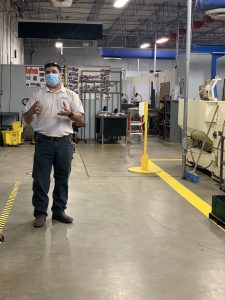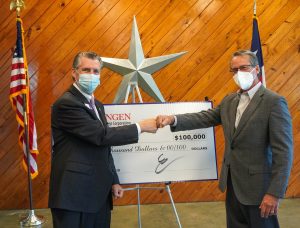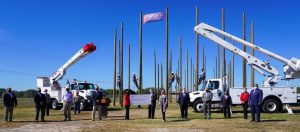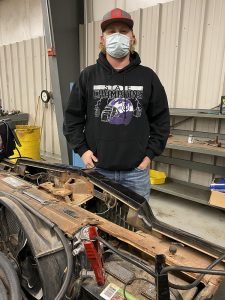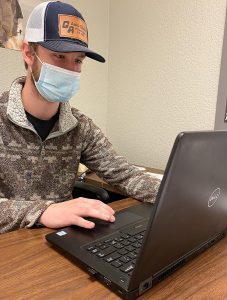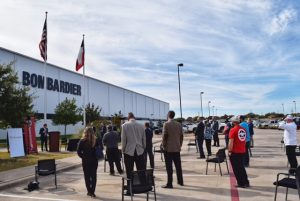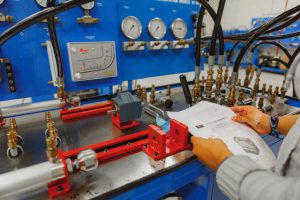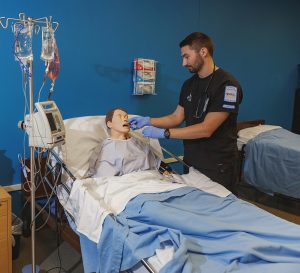(HARLINGEN, Texas) – Precision Machining Technology instructor Isaac Gonzalez has been teaching at Texas State Technical College for 10 years.
Precision Machining Technology is an intense, hands-on program in which students learn skills such as precision measurement, blueprint reading and the heat treatment of metals, making them highly employable and work-ready from day one. Graduates can find jobs in commercial and military aircraft industries, automotive tool manufacturing and, of course, oil tool manufacturing.
With the rise in demand for skilled machinists, Gonzalez is excited that his career allows him to share his expertise with students who will eventually become part of the growing field.
What inspired you to become an instructor?
After being in the industry for almost 15 years, I received a call from my former instructor, Mr. Steele. He said that he was wanting to retire and needed me to come in and interview as a lab assistant. Now, here I am loving teaching the new generation of precision machining professionals what it takes to make it out in the field.
What did you do before your time with TSTC?
Before TSTC, I was in transportation at various companies, and the majority of the time I was in a position in tool and die. I was mold making, making fixtures, and welding on the molds for companies.
What do you enjoy most about working with students?
I get to teach them the important things about our industry and all about what precision machining technology has to offer.
Jobs in machining are expected to increase steadily through 2029.
To learn more about TSTC, visit tstc.edu.
